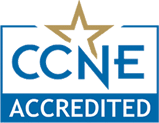Career
Nursing

The WCU Online Store is officially open. Visit Now.
WCU » Programs » LVN/LPN to BSN » Ontario


Earn your BSN degree in as little as 34 months at the Accelerated program pace
Complete 120 credits to obtain your Bachelor of Science in Nursing
Your previous nursing licensure grants you 9 credits toward your BSN degree

West Coast University Ontario has been voted as a FAVORITE in Career College/Trade School for the San Gabriel Valley Readers Choice Awards!

West Coast University Ontario has been voted as FAVORITE in four categories:
Balance of classroom education and hands-on practice through simulation labs and on-site clinical experience
Training on the fundamental duties of being an RN in various simulated medical settings, from ORs to labor and delivery rooms
Individualized support, including help selecting a clinical practice site, no-cost tutoring, and NCLEX study tools
A Career Services team assisting your job search and ongoing professional development
The LVN to BSN program at our Ontario campus puts you on a path toward earning your bachelor’s degree and becoming a registered nurse.
In our program, you can earn credits for your existing experience as a licensed vocational nurse, bringing you closer to achieving your educational goals. We provide our students with a well-rounded curriculum that covers all the competencies for a career as an RN, along with practical, hands-on experience through on-campus simulations and clinical practice at a healthcare facility.
We want to help you take your nursing education to the next level!
On-Campus
120 Credits
34 Months
7 Semesters
| Course Number | Course Name | Total Credit Hours |
|---|---|---|
| Number | Name | Hours |
| PATH 370 | Pathophysiology | 3 |
| PHIL 434 | Medical Ethics and Issues | 3 |
| Total Credit Hours: | 6 | |
| NURS 199D | Advanced Placement Credit (LVN) | 9 |
| Category and Requirements | WCU Course Requirements | Transferable / Options |
|---|---|---|
| Cat. and Req. | Trans. / Options | |
| Foundational Course | FYS 001(0): First Year Seminar (only offered at Los Angeles and Ontario Campuses prior to Spring II 2024) or FHE 100(3): Foundations of Higher Education (offered at all Campuses; Los Angeles and Ontario Campuses starting Spring II 2024) |
Non-transferable |
| A1- Written Communication (5 Semester Credits and 2 Courses Minimum) | **ENGL 140(3): Written Communication I
**ENGL 240(3): Written Communication II |
Any equivalent courses that meet the General Education categorical requirements. |
| A2. Oral Communication (2.5 Semester Credits Minimum) |
**SPCH 142(3): Oral Communication | Any equivalent courses that meet the General Education categorical requirements. |
| A3. Critical Thinking (2.5 Semester Credits Minimum) |
**PHIL 341(3): Critical Reasoning | Any equivalent courses that meet the General Education categorical requirements. |
| A4. Quantitative Reasoning (5 Semester Credits and 2 Courses Minimum) |
MATH 108(3): College Mathematics I
MATH 211(3): Statistics |
Any equivalent courses that meet the General Education categorical requirements. |
| B1– Social and Behavioral Sciences / Cultural Diversity, Tradition (8 Semester Credits and 3 Courses Minimum) |
|
|
| B2. Life and Physical Sciences (12 Semester Credits and 4 Courses Minimum) |
|
|
| B3. General Education Capstone (3 Semester Credits) |
CAPS 401(3): General Education Capstone (only offered at Los Angeles, Ontario Campuses prior to Spring II 2024) |
Non-transferable |
| A minimum of 46 credits is required for graduation. | ||
Note: The following course must have been taken in the last 5 years: ANAT 260, CHEM 280, MICR 290, and PHYS 261.
Note: If scheduled, the following courses are to be taken at WCU: FYS 001, FHE 100, CAPS 401, and PATH 370 and PHYS 261 (Orange County campus only, starting Summer 1 2023).
**As of April 2019, this course will be delivered online, asynchronously, through the institution’s Learning Management System except where otherwise authorized by the Program Dean/Director.
| Course Number | Course Name | Total Credit Hours |
|---|---|---|
| Number | Name | Hours |
| NURS 110 | Introduction to Professional Nursing | 2 |
| NURS 180 | Pharmacology | 3 |
| NURS 190 | Physical Assessment | 2 |
| NURS 201 | Medical Surgical Nursing-Promoting Wellness | 3 |
| NURS 210L-AB | RN Skills Laboratory | 2 |
| NURS 211L | Medical Surgical Nursing | 3 |
| NURS 222 | Mental Health/Psychiatric Nursing: Promoting Wellness in the Mentally Ill | 3 |
| NURS 223L | Mental Health/Psychiatric Nursing: Promoting Wellness Practicum | 2 |
| NURS 225 | Nutrition in Health and Disease | 3 |
| NURS 306 | Expanding Family and Community (OB) | 2 |
| NURS 307 | Developing Family and Community (PEDS) | 2 |
| NURS 316L-A | Expanding and Developing Family and Community Practicum (OB) | 1.5 |
| NURS 317L-A | Developing Family and Community Practicum (PEDS) | 1.5 |
| NURS 340 | Public Health Nursing | 3 |
| NURS 342L | Public Health Nursing Practicum | 2 |
| NURS 350 | Research in Nursing | 3 |
| NURS 420 | Principles of Leadership and Management | 3 |
| NURS 431 | Disaster Management | 2 |
| NURS 440 | Issues and Trends in Nursing | 3 |
| NURS 480 | Advanced Medical Surgical Nursing: Promoting Wellness Practicum | 3 |
| NURS 481L | Advanced Medical Surgical Nursing: Promoting Wellness Practicum | 3 |
| NURS 493* | Integration of Nursing Concepts | 3 |
| NURS 497 | Nursing Capstone | 1 |
| NURS 498L | Integration of Nursing Practices | 3 |
| Total Credit Hours: | 59.0 | |
NURS 210L: (LVN/LPN to BSN students only)
*NURS 493R – Taken if student is unsuccessful in NURS 493.
Note: Upon satisfactory completion of the transition courses (NURS 110 and NURS 210L), the LVN/LPN to BSN student will receive 9 units of Advanced Placement Credit (NURS 199D or NURS 199E).
| Program Credit Distribution (LVN/LPN-BSN) | |
|---|---|
| Program Credit Dist.(LVN/LPN-BSN) | |
| Approved Credits from Previous Licensure | 9.0 |
| General Education Semester Credits | 46.0 |
| General Education within the Area of Study | 6.0 |
| Core Nursing Courses | 59.0 |
| Total Program Semester Credits | 120.0 |
How Much Does the LVN to BSN Program in Ontario Cost?
We know school is a substantial commitment. At WCU, we want to equip you with all the information you need to make the right decision for your future.
Our goal is to give you a clear understanding of LVN to BSN tuition costs so you can be well-informed as you navigate the application and enrollment process. To assist you in your decision, we provide a breakdown below of the LVN to BSN program costs at West Coast University-Ontario.
We offer several financial aid options — including scholarships, grants, and loan access — to help support you through your studies.
Estimated Cost of Attendance is comprised of both direct costs and indirect costs, as outlined in the charts below. The purpose of the Cost of Attendance (COA) is to provide students and families with an estimated cost to attend West Coast University. The COA includes both direct and indirect cost estimates and are categorized as follows: (1) Direct costs are paid directly to West Coast University and are shown separately for each program; (2) Indirect costs are not paid to West Coast University and are estimates students may use to budget expenses they may incur while attending school. While actual indirect costs may vary, West Coast University estimates these amounts based on the number of months in an academic year and whether students will live with parents or off campus.
Direct Costs
| Degree Type | Starting Fall I 2024 | Starting Fall II 2024 |
| Total Program Credits1 | 120 | 120 |
| Program Length(Full-Time) | 7 semesters | 7 semesters |
| Full-Time Status(12 to 18 credits) | $18,250 | $15,000 |
| 3/4-Time Status(9 to 11 credits) | $15,212 | $12,450 |
| 1/2-Time Status(6 to 8 credits) | $11,810 | $9,750 |
| Less than 1/2-Time Status(under 6 credits) (per credit) | $2,026 | $1,665 |
| Total Tuition Costs(Full-Time) | $127,750 | $105,000 |
| Registration Fee(refundable) | $75 | $75 |
| STRF Fee2(non-refundable) | $0 | $0 |
| Estimated Total Book Costs3 | $5,078 | $5,078 |
| Estimated Total Book Shipping Cost3 | $508 | $508 |
| Estimate for Uniforms Fees3 | $250 | $250 |
| Estimate for Supplies & Licensure Preparation Fees3 | $2,345 | $2,345 |
| Technology Fee4($100 per semester) | $700 | $700 |
| General Education Resource Fee5 | $500 | $500 |
| Core Nursing Fee6 | $22,750 | |
| Estimated Total Program Costs | $137,206 | $137,206 |
Indirect Costs:
| 10 Month Academic Year | ||||
| Prior to Fall 1 2025 | Starting Fall I 2025 | |||
| with parents | off campus | with parents | off campus | |
| Federal Student Loan Fees | $100 | $100 | $100 | $100 |
| Course Materials (Personal Electronic Device-1st year only) | $1,000 | $1,000 | $1,000 | $1,000 |
| Living Expenses (Food & Housing) | $3,120 | $10,410 | $3,270 | $10,910 |
| Transportation | $2,160 | $2,160 | $2,200 | $2,200 |
| Miscellaneous Personal Expenses | $7,070 | $7,070 | $7,070 | $7,070 |
| Total | $13,450 | $20,740 | $13,660 | $21,300 |
1Includes 9 transfer credits for LVN license.
2 Effective April 1, 2024, the Student Tuition Recovery Fund (STRF) assessment rate will be zero dollars and zero cents ($0.00) per one thousand dollars ($1,000) of institutional charges.
The State of California established the Student Tuition Recovery Fund (STRF) to relieve or mitigate economic loss suffered by a student in an educational program at a qualifying institution, who is or was a California resident while enrolled, or was enrolled in a residency program, if the student enrolled in the institution, prepaid tuition, and suffered an economic loss. Unless relieved of the obligation to do so, you must pay the state-imposed assessment for the STRF, or it must be paid on your behalf, if you are a student in an educational program, who is a California resident, or are enrolled in a residency program, and prepay all or part of your tuition.
You are not eligible for protection from the STRF and you are not required to pay the STRF assessment, if you are not a California resident, or are not enrolled in a residency program.
It is important that you keep copies of your enrollment agreement, financial aid documents, receipts, or any other information that documents the amount paid to the school. Questions regarding the STRF may be directed to the Bureau for Private Postsecondary Education, 1747 N. Market Blvd. Ste 225 Sacramento, CA 95834, (916) 431-6959 or (888) 370-7589.
To be eligible for STRF, you must be a California resident or enrolled in a residency program, prepaid tuition, paid or deemed to have paid the STRF assessment, and suffered an economic loss as a result of any of the following:
To qualify for STRF reimbursement, the application must be received within four (4) years from the date of the action or event that made the student eligible for recovery from STRF.
A student whose loan is revived by a loan holder or debt collector after a period of noncollection may, at any time, file a written application for recovery from STRF for the debt that would have otherwise been eligible for recovery. If it has been more than four (4) years since the action or event that made the student eligible, the student must have filed a written application for recovery within the original four (4) year period, unless the period has been extended by another act of law.
However, no claim can be paid to any student without a social security number or a taxpayer identification number.
3 The Estimate for Book, Uniform, and Supply fees reflect the Manufacturer’s Suggested Retail Price totals compiled in December 2024 and are subject to change. Supplies become student purchases once issued to student. Students who drop or have been dismissed after supplies have been issued will assume ownership for these items and will not be eligible for refunds. For details on all of the supplies, contact the Bursar Office.
LVN to BSN Supplies issued in NURS 210L-AB RN Skills Laboratory.
4 Technology Fee includes student technical support, Office 365, blended and online course delivery/learning management system, mobile app, student portal technology and access, and required electronic course materials/software.
5 The General Education Resource Fee includes costs associated with lab supplies and materials, Labster virtual labs and simulations, and Tutor.com access.
6 The Core Nursing Fee will be billed each semester in which Core Nursing courses are scheduled and covers costs associated with background checks and drug screenings; the operation of equipment for Simulation, Technology, including but not limited to the establishment, scheduling, coordination, site visits, on-going management, and other expenses related to clinical activities. 4 Core Nursing Semesters multiplied by $5,915 per Core Nursing Semester effective Fall I 2025 and $5,687.50 per Core Nursing Semester prior to Fall I 2025.
Note 1: Students who wish to take Challenge Exams will be subject to a fee of $100 for each Challenge exam. Please see the campus Bursar Office for a full price listing.
Note 2: Course Audit Policy – Students auditing a course are not charged tuition or fees for the audited course. However, if a student enrolls in both an audit course and a credit-bearing course in the same semester/trimester, they will be responsible for the tuition and applicable fees associated with the credit-bearing course.
Note 3: The Total Tuition Cost can be converted to Cost per Credit Hour by using the following calculation:
Total Tuition Cost (Prior to Fall I 2025) ($127,750) divided by the Total Program Credits (120) = Cost Per Credit Hour ($1,064).
Total Tuition Cost (Prior to Fall I 2025) ($105,000) divided by the Total Program Credits (120) = Cost Per Credit Hour ($875).
Total Tuition Cost (Starting Fall I 2025) ($132,860) divided by the Total Program Credits (120) = Cost Per Credit Hour ($1,107).
Total Tuition Cost (Starting Fall I 2025) ($109,200) divided by the Total Program Credits (120) = Cost Per Credit Hour ($910).
Direct Costs
| Degree Type | Prior to Fall II 2024 | On and After Fall II 2024 |
| Total Program Credits1 | 120 | 120 |
| Program Length(Full-Time) | 7 semesters | 7 semesters |
| Full-Time Status(12 to 18 credits) | $18,250 | $15,000 |
| 3/4-Time Status(9 to 11 credits) | $15,212 | $12,450 |
| 1/2-Time Status(6 to 8 credits) | $11,810 | $9,750 |
| Less than 1/2-Time Status(under 6 credits) (per credit) | $2,026 | $1,665 |
| Total Tuition Costs(Full-Time) | $127,750 | $105,000 |
| Registration Fee(refundable) | $75 | $75 |
| STRF Fee2(non-refundable) | $0 | $0 |
| Estimated Total Book Costs3 | $4,214 | $4,214 |
| Estimated Total Book Shipping Cost3 | $421 | $421 |
| Estimate for Uniforms Fees3 | $250 | $250 |
| Estimate for Supplies & Licensure Preparation Fees3 | $4,200 | $4,200 |
| Technology Fee4($100 per semester) | $700 | $700 |
| General Education Resource Fee5 | $500 | $500 |
| Core Nursing Fee6 | $22,750 | |
| Estimated Total Program Costs | $138,110 | $138,110 |
Indirect Costs:
| 10 Month Academic Year7 | ||||
| Prior to Fall 1 2025 | Starting Fall I 2025 | |||
| with parents | off campus | with parents | off campus | |
| Federal Student Loan Fees | $100 | $100 | $100 | $100 |
| Course Materials (Personal Electronic Device-1st year only) | $1,000 | $1,000 | $1,000 | $1,000 |
| Living Expenses (Food & Housing) | $3,120 | $10,410 | $3,270 | $10,910 |
| Transportation | $2,160 | $2,160 | $2,200 | $2,200 |
| Miscellaneous Personal Expenses | $7,070 | $7,070 | $7,070 | $7,070 |
| Total | $13,450 | $20,740 | $13,660 | $21,300 |
1Includes 9 transfer credits for LVN license.
2 Effective April 1, 2024, the Student Tuition Recovery Fund (STRF) assessment rate will be zero dollars and zero cents ($0.00) per one thousand dollars ($1,000) of institutional charges.
The State of California established the Student Tuition Recovery Fund (STRF) to relieve or mitigate economic loss suffered by a student in an educational program at a qualifying institution, who is or was a California resident while enrolled, or was enrolled in a residency program, if the student enrolled in the institution, prepaid tuition, and suffered an economic loss. Unless relieved of the obligation to do so, you must pay the state-imposed assessment for the STRF, or it must be paid on your behalf, if you are a student in an educational program, who is a California resident, or are enrolled in a residency program, and prepay all or part of your tuition.
You are not eligible for protection from the STRF and you are not required to pay the STRF assessment, if you are not a California resident, or are not enrolled in a residency program.
It is important that you keep copies of your enrollment agreement, financial aid documents, receipts, or any other information that documents the amount paid to the school. Questions regarding the STRF may be directed to the Bureau for Private Postsecondary Education, 1747 N. Market Blvd. Ste 225 Sacramento, CA 95834, (916) 431-6959 or (888) 370-7589.
To be eligible for STRF, you must be a California resident or enrolled in a residency program, prepaid tuition, paid or deemed to have paid the STRF assessment, and suffered an economic loss as a result of any of the following:
To qualify for STRF reimbursement, the application must be received within four (4) years from the date of the action or event that made the student eligible for recovery from STRF.
A student whose loan is revived by a loan holder or debt collector after a period of noncollection may, at any time, file a written application for recovery from STRF for the debt that would have otherwise been eligible for recovery. If it has been more than four (4) years since the action or event that made the student eligible, the student must have filed a written application for recovery within the original four (4) year period, unless the period has been extended by another act of law.
However, no claim can be paid to any student without a social security number or a taxpayer identification number.
3 The Estimate for Book, Uniform, and Supply fees reflect the Manufacturer’s Suggested Retail Price totals compiled in December 2024 and are subject to change. Supplies become student purchases once issued to student. Students who drop or have been dismissed after supplies have been issued will assume ownership for these items and will not be eligible for refunds. For details on all of the supplies, contact the Bursar Office.
LVN to BSN Supplies issued in NURS 210L-AB RN Skills Laboratory.
4 Technology Fee includes student technical support, Office 365, blended and online course delivery/learning management system, mobile app, student portal technology and access, and required electronic course materials/software.
5 The General Education Resource Fee includes costs associated with lab supplies and materials, Labster virtual labs and simulations, and Tutor.com access.
6 The Core Nursing Fee will be billed each semester in which Core Nursing courses are scheduled and covers costs associated with background checks and drug screenings; the operation of equipment for Simulation, Technology, including but not limited to the establishment, scheduling, coordination, site visits, on-going management, and other expenses related to clinical activities. 4 Core Nursing Semesters multiplied by $5,915 per Core Nursing Semester effective Fall I 2025 and $5,687.50 per Core Nursing Semester prior to Fall I 2025.
Note 1: Students who wish to take Challenge Exams will be subject to a fee of $100 for each Challenge exam. Please see the campus Bursar Office for a full price listing.
Note 2: Course Audit Policy – Students auditing a course are not charged tuition or fees for the audited course. However, if a student enrolls in both an audit course and a credit-bearing course in the same semester/trimester, they will be responsible for the tuition and applicable fees associated with the credit-bearing course.
Note 3: The Total Tuition Cost can be converted to Cost per Credit Hour by using the following calculation:
Total Tuition Cost (Prior to Fall I 2025) ($127,750) divided by the Total Program Credits (120) = Cost Per Credit Hour ($1,064).
Total Tuition Cost (Prior to Fall I 2025) ($105,000) divided by the Total Program Credits (120) = Cost Per Credit Hour ($875).
Total Tuition Cost (Starting Fall I 2025) ($132,860) divided by the Total Program Credits (120) = Cost Per Credit Hour ($1,107).
Total Tuition Cost (Starting Fall I 2025) ($109,200) divided by the Total Program Credits (120) = Cost Per Credit Hour ($910).
Direct Costs
| Degree Type | Prior to Fall II 2024 | On and After Fall II 2024 |
| Total Program Credits1 | 120 | 120 |
| Program Length(Full-Time) | 7 semesters | 7 semesters |
| Full-Time Status(12 to 18 credits) | $18,980 | $15,600 |
| 3/4-Time Status(9 to 11 credits) | $15,820 | $12,950 |
| 1/2-Time Status(6 to 8 credits) | $12,282 | $10,140 |
| Less than 1/2-Time Status(under 6 credits) (per credit) | $2,107 | $1,732 |
| Total Tuition Costs(Full-Time) | $132,860 | $109,200 |
| Registration Fee(refundable) | $75 | $75 |
| STRF Fee2(non-refundable) | $0 | $0 |
| Estimated Total Book Costs3 | $4,006 | $4,006 |
| Estimated Total Book Shipping Cost3 | $401 | $401 |
| Estimate for Uniforms Fees3 | $250 | $250 |
| Estimate for Supplies & Licensure Preparation Fees3 | $4,200 | $4,200 |
| Technology Fee4($100 per semester) | $700 | $700 |
| General Education Resource Fee5 | $500 | $500 |
| Core Nursing Fee6 | $23,660 | |
| Estimated Total Program Costs | $142,992 | $142,992 |
Indirect Costs:
| 10 Month Academic Year | ||||
| Prior to Fall 1 2025 | Starting Fall I 2025 | |||
| with parents | off campus | with parents | off campus | |
| Federal Student Loan Fees | $100 | $100 | $100 | $100 |
| Course Materials (Personal Electronic Device-1st year only) | $1,000 | $1,000 | $1,000 | $1,000 |
| Living Expenses (Food & Housing) | $3,120 | $10,410 | $3,270 | $10,910 |
| Transportation | $2,160 | $2,160 | $2,200 | $2,200 |
| Miscellaneous Personal Expenses | $7,070 | $7,070 | $7,070 | $7,070 |
| Total | $13,450 | $20,740 | $13,660 | $21,300 |
1Includes 9 transfer credits for LVN license.
2 Effective April 1, 2024, the Student Tuition Recovery Fund (STRF) assessment rate will be zero dollars and zero cents ($0.00) per one thousand dollars ($1,000) of institutional charges.
The State of California established the Student Tuition Recovery Fund (STRF) to relieve or mitigate economic loss suffered by a student in an educational program at a qualifying institution, who is or was a California resident while enrolled, or was enrolled in a residency program, if the student enrolled in the institution, prepaid tuition, and suffered an economic loss. Unless relieved of the obligation to do so, you must pay the state-imposed assessment for the STRF, or it must be paid on your behalf, if you are a student in an educational program, who is a California resident, or are enrolled in a residency program, and prepay all or part of your tuition.
You are not eligible for protection from the STRF and you are not required to pay the STRF assessment, if you are not a California resident, or are not enrolled in a residency program.
It is important that you keep copies of your enrollment agreement, financial aid documents, receipts, or any other information that documents the amount paid to the school. Questions regarding the STRF may be directed to the Bureau for Private Postsecondary Education, 1747 N. Market Blvd. Ste 225 Sacramento, CA 95834, (916) 431-6959 or (888) 370-7589.
To be eligible for STRF, you must be a California resident or enrolled in a residency program, prepaid tuition, paid or deemed to have paid the STRF assessment, and suffered an economic loss as a result of any of the following:
To qualify for STRF reimbursement, the application must be received within four (4) years from the date of the action or event that made the student eligible for recovery from STRF.
A student whose loan is revived by a loan holder or debt collector after a period of noncollection may, at any time, file a written application for recovery from STRF for the debt that would have otherwise been eligible for recovery. If it has been more than four (4) years since the action or event that made the student eligible, the student must have filed a written application for recovery within the original four (4) year period, unless the period has been extended by another act of law.
However, no claim can be paid to any student without a social security number or a taxpayer identification number.
3 The Estimate for Book, Uniform, and Supply fees reflect the Manufacturer’s Suggested Retail Price totals compiled in December 2024 and are subject to change. Supplies become student purchases once issued to student. Students who drop or have been dismissed after supplies have been issued will assume ownership for these items and will not be eligible for refunds. For details on all of the supplies, contact the Bursar Office.
LVN to BSN Supplies issued in NURS 210L-AB RN Skills Laboratory.
4 Technology Fee includes student technical support, Office 365, blended and online course delivery/learning management system, mobile app, student portal technology and access, and required electronic course materials/software.
5 The General Education Resource Fee includes costs associated with lab supplies and materials, Labster virtual labs and simulations, and Tutor.com access.
6 The Core Nursing Fee will be billed each semester in which Core Nursing courses are scheduled and covers costs associated with background checks and drug screenings; the operation of equipment for Simulation, Technology, including but not limited to the establishment, scheduling, coordination, site visits, on-going management, and other expenses related to clinical activities. 4 Core Nursing Semesters multiplied by $5,915 per Core Nursing Semester effective Fall I 2025 and $5,687.50 per Core Nursing Semester prior to Fall I 2025.
Note 1: Students who wish to take Challenge Exams will be subject to a fee of $100 for each Challenge exam. Please see the campus Bursar Office for a full price listing.
Note 2: Course Audit Policy – Students auditing a course are not charged tuition or fees for the audited course. However, if a student enrolls in both an audit course and a credit-bearing course in the same semester/trimester, they will be responsible for the tuition and applicable fees associated with the credit-bearing course.
Note 3: The Total Tuition Cost can be converted to Cost per Credit Hour by using the following calculation:
Total Tuition Cost (Prior to Fall I 2025) ($127,750) divided by the Total Program Credits (120) = Cost Per Credit Hour ($1,064).
Total Tuition Cost (Prior to Fall I 2025) ($105,000) divided by the Total Program Credits (120) = Cost Per Credit Hour ($875).
Total Tuition Cost (Starting Fall I 2025) ($132,860) divided by the Total Program Credits (120) = Cost Per Credit Hour ($1,107).
Total Tuition Cost (Starting Fall I 2025) ($109,200) divided by the Total Program Credits (120) = Cost Per Credit Hour ($910).
For admissibility into the LVN to BSN program, applicants must meet the following requirements:
For more information on program requirements, please visit our catalog.
New academic terms begin, on average, every 10 weeks. The number of semesters required for your program varies based on the program pace you select. To see a list of term start and completion dates, view the Academic Calendar.
At WCU, we believe that students learn by doing. That’s why we offer technologically advanced simulation labs that put students right into the action.
In our WCU-Ontario simulation center, LVN to BSN students practice all types of medical scenarios and settings (medical and surgical units, pediatrics, maternity/OB, mental health, etc.), where they get to practice patient care on high-fidelity manikins that can respond like real patients. These manikins mimic physiological responses like dropped blood pressure, dilated pupils, sweat, tears, and more.
Simulations are an excellent way for students to practice their skills and gain feedback from instructors before completing their clinicals.

One way we support our Ontario LVN to BSN students is by helping them with their clinical placements. We have a dedicated team that can assist you with site selection when it comes time to choose a healthcare facility for your clinical practice hours.
We have local hospitals and other healthcare facilities that we partner with, which provides you with more options for your clinicals. We can assist you with and general support along the way.
At WCU-Ontario, we give you the tools and support you need to properly prepare for the National Council Licensure Examination for registered nurses (NCLEX-RN). We know how important it is for you to pass your test and become an RN, and that’s why we offer resources such as:
We want to support you not just throughout your program, but throughout your nursing career as well. As a WCU student and alumnus, you will have access to our Career Services department, which assists with everything from career planning to assistance with your job search.
Our Career Services team can help you spruce up your resume, practice your interview skills, connect with industry recruiters, find nursing positions that match your interests, and more. This is your one-stop hub for career guidance and resources! 1
There are many different types of job opportunities that are available to registered nurses. These are the most common employers of RNs, according to the U.S. Bureau of Labor Statistics:

Dr. Piazza has been working in the university since 2009. Her past roles included Faculty; Campus Associate Dean of Nursing, Academics; Campus Dean of Nursing; and Associate Dean, College of Nursing. Most recently, she has been appointed to the position of Dean, College of Nursing.
She has a Doctor of Philosophy in Nursing from the University of San Diego, a Master of Education from Cambridge College, and a Bachelor of Science in Nursing from the University of California, Los Angeles.
With a commitment to community service, Dr. Piazza is a Commissioner for the Sister Cities Commission of Anaheim. And has previously served as Commissioner, Orange County Human Relations, and Board Member for the School Nurses of California Foundation.
The LVN to BSN program at WCU-Ontario is offered at an Accelerated pace and takes 34 months to complete.
Our LVN to BSN program makes it possible for you to take your experience as a licensed vocational nurse and turn it into credits toward your Bachelor of Science in Nursing degree. This creates a “bridge” between your existing experience and your bachelor’s degree so you can streamline your path to a BSN.
After completing your program, you will be able to sit for your RN licensure exam. Our Ontario LVN to BSN program helps you prepare for the exam through your coursework, clinical experience, and additional study resources that we offer, such as NCLEX boot camps and no-cost tutoring.
Financial aid and scholarships are available for those who qualify. You can visit our Financial Aid page to learn about the various forms of aid that may be available you (depending on your eligibility). We offer many different institutional scholarships and grants that you may want to consider. Speak with a WCU financial aid advisor to learn more about your options.
West Coast University
2855 E. Guasti Rd
Ontario, CA 91761
(909) 467-6100

The baccalaureate degree program in nursing, master’s degree program in nursing, Doctor of Nursing Practice program, and post-graduate APRN certificate program at West Coast University are accredited by the Commission on Collegiate Nursing Education 655 K Street, Suite 750, Washington DC 20001, (202) 877-6791 (www.ccneaccreditation.org).
Pursuing your degree is a big choice. Fill out our form and one of our admissions advisors will contact you to answer any questions you may have!
1 WCU provides career guidance and assistance but cannot guarantee employment.
2 Bureau of Labor Statistics, U.S. Department of Labor, Occupational Outlook Handbook, Registered Nurses, “Work Environment,” Updated Sept. 8, 2022
Financial aid and scholarships are available for those who qualify.